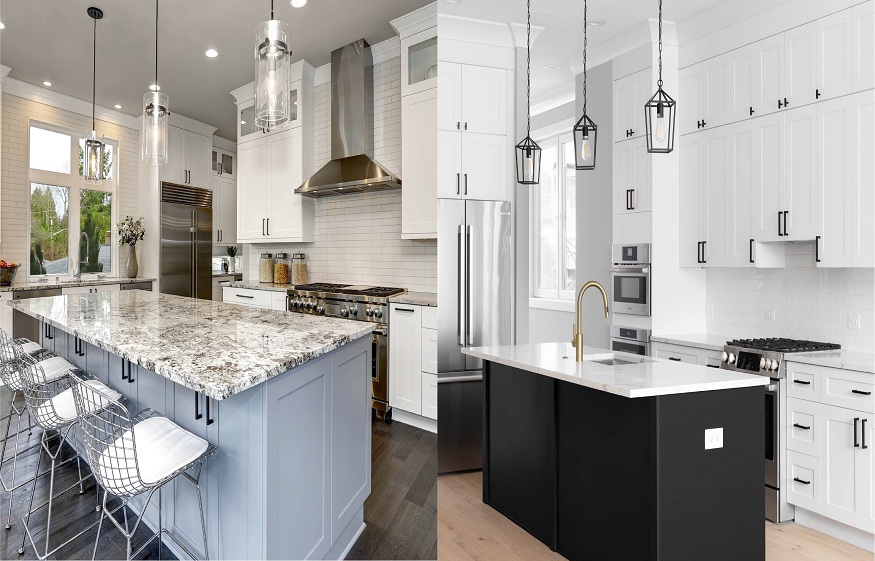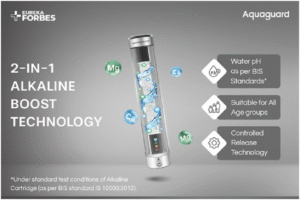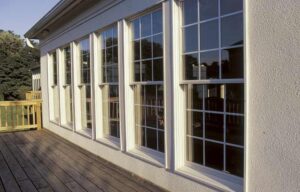The Durability of Granite vs. Quartz Countertops in New Jersey Homes
5 min read
When it comes to remodeling a kitchen or bathroom in New Jersey, countertop durability is often one of the most important factors homeowners consider. Among the wide range of materials available, granite and quartz have become two of the most popular choices, each offering distinct advantages and unique characteristics. Both materials are known for their resilience and style, yet they differ in ways that might influence the choice for your NJ home. Below, we’ll delve into a side-by-side comparison of granite countertops NJ and quartz countertops NJ to help you make the best choice for your next countertop.
1. Natural vs. Engineered Composition
One of the first distinctions between granite and quartz countertops is in their composition. Granite is a 100% natural stone, cut from large slabs mined directly from quarries. Each slab of granite is unique, offering a natural variety of colors and patterns created by the crystallization of minerals over millions of years. This makes granite ideal for those looking for a one-of-a-kind, authentic look.
On the other hand, quartz is an engineered stone, made from a blend of about 90-95% natural quartz crystals with resin binders and pigments. This construction allows for a more consistent look in quartz countertops, as well as a wider variety of colors and patterns that may be more modern or even mimic natural stones.
2. Durability and Hardness
When it comes to durability, both granite and quartz excel, but there are key differences. Granite is one of the hardest materials found in nature, and it withstands scratches and heat better than most countertop materials. It’s highly resistant to cuts and scratches from knives or other kitchen utensils. However, granite can chip along the edges if hit hard with heavy objects.
Quartz, though also hard, is slightly more flexible than granite, making it less prone to chipping. The binding resins used in quartz manufacturing add to its durability, making it even more resilient to cracking and chipping than granite. This strength, combined with the non-porous structure of quartz, makes it highly resistant to everyday wear and tear, ideal for high-traffic areas or families with busy kitchens.
3. Stain and Bacterial Resistance
One of the most significant differences between granite and quartz is their resistance to stains and bacteria. Because granite is a natural stone, it is porous, meaning it can absorb liquids if not properly sealed. In New Jersey homes, where kitchens often face heavy use, granite must be sealed at least once a year to prevent stains from spills like wine, coffee, or cooking oils. Regular sealing also helps reduce the risk of bacteria buildup, making it safer for food preparation.
Quartz, by contrast, is non-porous due to its engineered structure, which means it’s naturally resistant to staining and bacteria. There’s no need for sealing, making quartz countertops a low-maintenance option. This feature makes quartz particularly appealing for New Jersey homeowners who prefer surfaces that are both easy to clean and sanitary.
4. Heat Resistance
Both granite and quartz have solid heat resistance, but granite takes the lead when it comes to withstanding high temperatures. Granite can endure high levels of heat without warping or discoloration, making it an excellent choice for those who frequently use hot cookware directly on the countertop. However, placing excessively hot items directly on granite for prolonged periods can still cause some damage, so it’s always advisable to use trivets or hot pads.
Quartz, while durable, is more vulnerable to heat damage because of the resins in its composition. High temperatures can cause the resin to melt or discolor, which may leave a mark on the surface. For NJ homeowners who love to cook, using trivets or heat pads with quartz countertops is essential to avoid lasting damage.
5. Environmental Impact
With more NJ homeowners considering eco-friendly options, it’s worth noting the environmental impact of both materials. Granite, as a natural stone, requires quarrying and transportation, which contributes to its carbon footprint. However, its durability and timeless appeal mean granite countertops are likely to last a lifetime, reducing the need for replacement and additional resource consumption.
Quartz countertops, being engineered, also have an environmental impact. The manufacturing process consumes energy, but quartz production often uses byproducts from other industries, reducing waste. Additionally, many quartz manufacturers strive to reduce their environmental footprint by implementing recycling and sustainable production methods. Overall, both options have environmental pros and cons, but choosing a durable material that reduces the need for replacements is a green choice either way.
6. Aesthetic Appeal
For homeowners in NJ looking for a specific aesthetic, both granite and quartz offer various styles, though each material has a different visual appeal. Granite’s natural composition gives it unique, earthy patterns, with each slab offering distinct mineral formations, colors, and veins. For those who value a one-of-a-kind design with a touch of nature, granite is a solid choice.
Quartz, with its engineered versatility, allows for a more controlled appearance, and can be made in a wide range of colors and styles to suit modern designs. It can even be manufactured to mimic the look of marble, concrete, or granite, making it perfect for homeowners who want a custom look without the unpredictability of natural stone. Quartz also provides a sleeker, uniform appearance, which may appeal to those aiming for a contemporary look.
7. Cost and Value
Cost is often a significant factor when deciding between granite and quartz countertops. Generally, granite can be slightly more affordable than quartz, depending on the type and rarity of the stone. However, the price of both materials can vary greatly based on the quality, color, and style chosen. Although quartz may have a higher upfront cost, it often offers greater long-term value due to its durability and low maintenance, making it a sound investment for NJ homeowners.
Making Your Choice: Which is Best for Your NJ Home?
The decision between granite and quartz ultimately comes down to personal preference, budget, and lifestyle. For NJ homeowners who value natural beauty and are willing to perform some maintenance, granite offers a timeless, unique look that’s hard to replicate. Meanwhile, for those seeking a low-maintenance, resilient, and versatile countertop, quartz provides durability with less upkeep and a range of styles to suit any design.
When making this decision, Direct Depot Kitchen Wholesalers is an excellent resource for NJ homeowners, offering a wide selection of granite and quartz options to match any style and budget. Their knowledgeable team can help guide you in selecting the perfect countertop to meet your needs.
In conclusion, both granite and quartz countertops bring impressive durability and beauty to New Jersey homes, each with its own strengths. No matter which material you choose, granite and quartz countertops are sure to add lasting value and elegance to your kitchen or bathroom for years to come.






